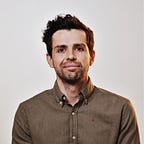Top 5 book picks of 2020
We all have agree that this year has had its up and downs, but personally I‘m part of the minority that enjoy seeing the glass half full. For the first time in my life, I’ve set myself a realistic goal of reading 1 book per month for this year, and Corona helped me go above and beyond my goal. It wasn’t easy at first, but once you get a hold of a habit, the outcomes become spectacular. In my case I dedicated not more than 1 hour a day on average to read, but it had to meet one specific criteria, and that was to keep me entertained, if it didn’t I quickly moved on to the next one book.
With this being said, I would like to recommend the top 5 books that I considered were outstanding among the rest, each one of them with a different value and insightful proposition. (No particular order)
1. The Compound Effect
by Darren Hardy
This is no b.s. self-help book, in fact it contains very practical advice regarding habits and behaviors that shape our future selves. Compounding habits can bring similar benefits that compounding interest does in economic terms. Call me ignorant but I couldn’t fathom the impact of this particular effect, and best of all, when you start harvesting results from habits you started a year or more ago gives you a sense of fulfillment and acomplishment that any other experience can offer.
This book focuses, with specific examples (which I love in a book) on how these habits can add up to something way more substantial than just a “better” lifestyle or a simple upgrade in your life quality. Link
2. Predictably Irrational
by Dan Ariely
Dan Ariely goes deep into experimenting with human behavior, and what he finds study after study is that we, in fact, are not a rational species, therefore the title “Predictably Irrational”. His conclusions on the book sums up the hellenistic philosophy maxim of “reality is what we make of it”, making a point to what the perception vs objective reality discussions find.
Another bonus point is that you don’t need to be focused in the psychological field to read and have some learnings applied to your everyday life. It applies to practically every human being interested on how we make everyday, banal decisions. Link
3. Calling Bullshit
by Carl T. Bergstrom, Jevin West
More than ever, with so much misinformation and fake news around us 24/7 we need to be critical and analytical on what we take as good and bad information, in other words, differentiating signal from noise. This book offers great methods to see through bullshit in the media, social feeds or casual conversation. It’s just impressive to contemplate the amount of misinformation laying around our everyday lives when put through a strict and methodic lens.
The toolkit offered by the authors also tackles most of the common mistakes when interpreting data, so that we don’t get fooled by a fancy chart showing an “alarming upward trend”, in essence the ultimate goal of the book is to remove adjectives and superlatives from our vocabulary when interpreting data. Link
4. Post Corona
by Scott Galloway
I have to admit that Scott can be polarizing, and I think that’s what he aims to be after all. Often criticized for being heavily opinionated on Wall Street with no “serious” credentials, but, to my eyes, he does a pretty thorough analysis on where we stand today in terms of economic development.
His take on Big Tech is pretty spot on, the focus needed to survive this new post covid scenario is narrowed into three main categories that Galloway describes in detail and with tangible examples: Pivot, Accelerate and Stop.
The final chapter about capitalism does a good job on zooming out and stating what he thinks is the underlying problem: unregulated markets. Pretty solid analysis coupled with funny and entertaining narrative. (And yes, this is pretty much a series of blog posts on his website yarned into a book, but worth a second read even if you did follow some of this content.) Link
5. Finish
by Jon Acuff
One of the most to-the-point and concrete books on productivity. Either if you are a perfectionist that fails to finish tasks or a task-master person, this book will hit you with a couple of tips for your everyday workflow and tasks. Be prepared to have perfectionism antagonized from page 1.
Jon’s entertaining writing style complements the reserach-backed objective advice and makes it a super fun and easy read. Link
If you want to be updated with future blog posts, suscribe to the newsletter.
